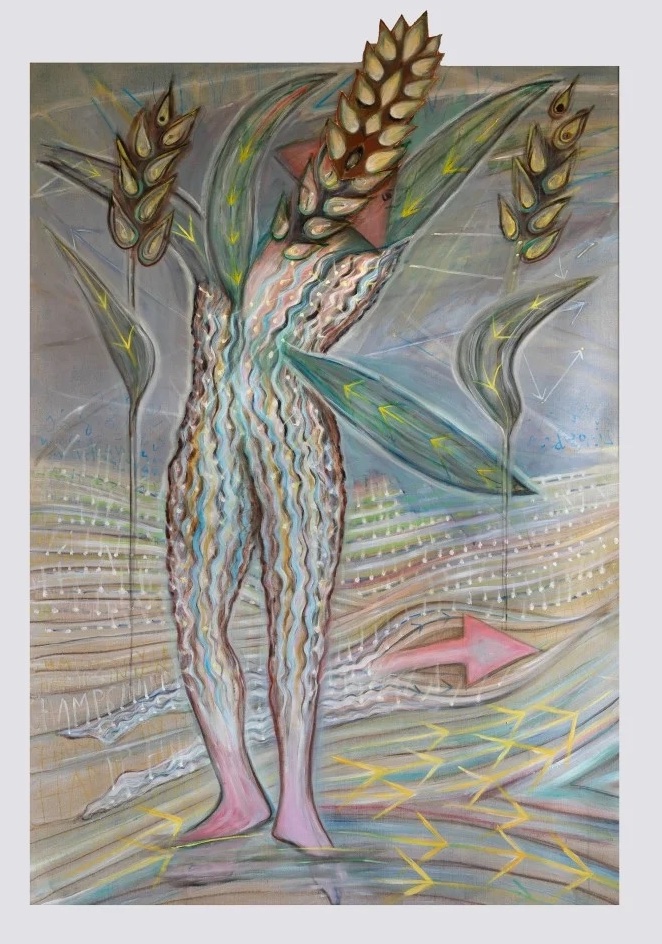Mathilde Rosier
In the Fields of Intensive Prosperity
May 16, 2023–July 22, 2023Foundation Pernod Ricard, Paris
Mathilde Rosier has been painting since she was seventeen. She has long placed environmental concerns and what she calls “plants’ perspective” at the heart of her pictorial practice and artistic thinking. Seen at the Jeu de Paume in 2010, after an invitation from Elena Filipovic, the exhibition at the Fondation Pernod Ricard brings different periods of her work into conversation.
It is the first major exhibition dedicated to her to be held in Paris. She presents here a broad selection of paintings made in recent years, a video installation, new glass creations, and older sculptures. The collection constitutes a fertile environment in which the viewer can share Mathilde’s thoughts on nature, plants, and the coexistence of species. The exhibition also conveys her deep conviction that art is the appropriate language for informing the social corpus of a life endowed with intelligence, rights, and even spirituality.
For a long time now, Mathilde has been working on the sensitive dimension of life and the possibility of communicating with nature, the possibility of being with and within nature. This exhibition provides a new comparison of motifs and elements present in her work for several years now, as part of a holistic and immersive approach. Occupying a central position in the exhibition, the paintings and drawings also share the space with a new video. At the heart of this new project is not just a generic notion of nature, but more specifically the history of the domestication of plants and agriculture.
Through her paintings, Mathilde Rosier thinks and provides food for thought regarding the complexity of crossing the barrier between the state of nature and the state of being truly human.
In the planted fields, in the grids created to produce grain, in the industrial use of the land and of certain nutritive species, she sees an intermediary state between nature and humanity. These gigantic fields, these plants – as though in limbo – constitute a space between human and natural logics. Our history, as a species, is that of our relationship with the plants that sustain us. The Neolithic saw the emergence of the first farmers and the formation of sedentary villages throughout all of Europe. During this period, a particular set of concepts was formed, referring for the first time to home and hearth – under the term domus – thus providing a metaphor and mechanism for social and economic transformation.
Rosier’s work offers us a territory in which to examine the evolution of human societies with respect to the many species that we have modified and transformed in order to survive. Her painting and video work also offers a new symbolic language for all those who are involved in this monumental transition from nature towards something else. It is also a ritual, a set of actions and movements oriented towards the awakening of a different way of thinking and an affection towards the fields, towards the life that we are constantly modifying in the name of our own interests.
We refer to this new and vast body of work as an exhibition, but we could just as easily call it a “chapel” or “cave”. The primary energy emanating from this work is the invention of an interior space in which we can reimagine coexistence and a new life together.
Chus Martínez, curator of the exhibition
